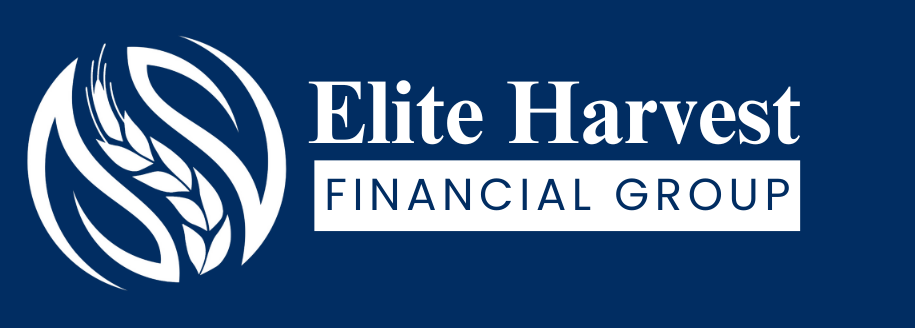Did you know that buying a house is considered one of life’s most stressful experiences, ranking right up there with divorce and job loss?
For first-time homebuyers in Whitby, the process can feel particularly overwhelming. From saving for a down payment to understanding mortgage options and navigating Ontario’s unique real estate regulations, there’s a lot to learn.
Fortunately, breaking down the home-buying journey into manageable steps can transform this seemingly impossible task into an achievable goal. Whitby’s real estate market offers wonderful opportunities for first-time buyers – you just need to know how to navigate it properly.
As a local mortgage broker who’s helped countless first-time buyers find their perfect Whitby home, I’ve created this comprehensive step-by-step guide specifically for the 2024 market.
Whether you’re still saving for a down payment or ready to start house hunting, this guide will walk you through every stage of the process – from organizing your finances and understanding mortgage pre-approvals to taking advantage of first-time buyer incentives and budgeting for those often-overlooked expenses.
Step 1: Get Your Finances in Order
Before house hunting in Whitby, getting your finances in order is the foundation of a successful purchase. This crucial first step helps you understand what you can actually afford and prepares you for mortgage approval.
Check your credit score and fix errors
Your credit score significantly impacts your mortgage approval and interest rates. In Canada, lenders use this number to assess your reliability as a borrower. To improve your payment history, which is the most important factor for your credit score, always make payments on time and at least meet the minimum requirement if you can’t pay the full amount.
Keep your credit utilization low—ideally under 30% of your available credit. For instance, if your credit card limit is $6,966.80, try to keep your balance below $1,393.36. Additionally, maintain your oldest credit accounts since the length of your credit history affects your score.
Take these steps to boost your credit score:
- Pay bills consistently and on time
- Reduce debt on existing accounts
- Avoid applying for multiple new credit products in a short period
- Check your credit report annually for errors and dispute any inaccuracies
Calculate your monthly income and expenses
Understanding your financial situation requires a clear picture of what comes in and goes out each month. Financial experts generally recommend that your housing costs shouldn’t exceed 30-32% of your gross monthly income.
Begin by listing all income sources and categorizing your monthly expenses. Include everything from groceries and transportation to entertainment and debt payments. This comprehensive view helps determine how much you can realistically allocate toward housing costs without becoming “house poor”—where most of your income goes toward your home, leaving little for other necessities or savings.
Remember to account for potential changes in income or expenses. Lenders will also consider your debt-to-income ratio when evaluating your mortgage application, so minimizing existing debts before applying can improve your approval chances.
Estimate your down payment and savings goal
In Canada, the minimum down payment depends on the home’s purchase price. For homes under $696,680.10, you need at least 5% down. For properties between $696,680.10 and $2,090,038.91, you need 5% on the first $696,680.10 and 10% on the remainder. Homes priced at $2,090,040.30 or more require a 20% down payment.
For example, if you’re buying a $557,344.08 home in Whitby, you’ll need at least $27,867.20 (5% of the purchase price) as a down payment. However, putting down less than 20% means you’ll need mortgage loan insurance, which adds to your total costs.
Moreover, aim to save beyond just the down payment. For most first-time homebuyers in Durham, $41,800.81-$55,734.41 is a realistic savings target to cover all upfront costs. This includes your down payment plus closing costs.
To reach your savings goal faster, consider:
- Setting up automatic transfers to a dedicated savings account
- Using a First Home Savings Account (FHSA) for tax-free savings
- Breaking your goal into smaller milestones to maintain motivation
- Exploring the Home Buyers’ Plan, which allows first-time buyers to withdraw up to $48,767.61 per person from their RRSP
Remember that larger down payments result in smaller mortgages, which can save thousands in interest charges over time. Consequently, saving more than the minimum requirement is often advantageous if time permits.
Step 2: Understand Your Mortgage Options
Navigating through mortgage options can feel like traversing a maze, especially for first-time buyers in Whitby. Understanding the right mortgage type for your situation forms the cornerstone of a successful home purchase.
Fixed vs. variable rate mortgages
The choice between fixed and variable rates represents one of your most crucial mortgage decisions. With a fixed-rate mortgage, your interest rate remains locked in for the entire term, providing payment stability throughout that period. This option shields you from market fluctuations and makes budgeting predictable.
In contrast, a variable-rate mortgage has an interest rate that fluctuates based on your lender’s prime rate. While your regular payments typically stay consistent, the amount applied to principal versus interest changes as rates shift. If rates decrease, more of your payment reduces the principal; if rates rise, more goes toward interest.
Consider these factors when choosing:
- Fixed rates provide stability but may cost more long-term
- Variable rates often start lower but carry uncertainty
- Variable mortgages usually allow conversion to fixed rates during the term
- Fixed options work better for those who prefer consistent payments
Furthermore, both types come in open and closed varieties. Open mortgages allow prepayment without penalties but typically have higher interest rates, whereas closed mortgages limit early payoffs but offer lower rates.
What is mortgage pre-approval?
Mortgage pre-approval occurs when a lender examines your finances and confirms how much they’re willing to lend you before you start house hunting. Unlike pre-qualification (a quick estimate based on self-reported information), pre-approval involves verifying your financial information and checking your credit.
During this process, the lender will:
- Discuss your financial strategy and needs
- Review various mortgage options
- Take a detailed application with employment and income details
- Check your credit report
- Request documentation for income and down payment verification
Pre-approval benefits include knowing exactly what you can afford, strengthening your negotiating position with sellers, and potentially locking in interest rates for 60-130 days depending on the lender. Although not a guaranteed loan, it gives you confidence while house hunting.
How much can you borrow in Whitby?
Your borrowing capacity depends primarily on your financial profile rather than location. Nevertheless, lenders assess several factors when determining your mortgage amount:
- Income and employment stability
- Credit score and history
- Existing debt levels
- Down payment amount
- Preferred repayment timeline
Lenders use two key ratios to calculate your maximum borrowing amount: Gross Debt Service (GDS) and Total Debt Service (TDS). The GDS ratio limits housing expenses to 30-32% of your gross annual income, while TDS restricts total debt payments to 37-40%.
Remember that mortgage qualification involves the stress test, which ensures you can afford payments if interest rates rise. This test requires qualifying at either your contract rate plus 2% or the minimum qualifying rate, whichever is higher.
Working with a mortgage broker rather than directly with a bank often provides access to multiple lending options instead of just one institution’s products. This expanded access proves particularly valuable for self-employed individuals or those with complex financial situations.
Step 3: Explore First-Time Buyer Incentives
Fortunately, several government programs exist to make homeownership more accessible for first-time buyers in Whitby. These incentives can significantly reduce upfront costs and make monthly payments more manageable.
Home Buyers' Plan (HBP)
The Home Buyers’ Plan allows first-time homebuyers to withdraw funds from their RRSPs tax-free to purchase a home. As of April 2024, the withdrawal limit increased to $83,601.61 per person from the previous $48,767.61. For couples, this means accessing up to $167,203.22 combined.
To qualify for the HBP, you must:
- Be a first-time buyer or not have owned property in the last four years
- Ensure funds have been in your RRSP for at least 90 days before withdrawal
- Repay the amount within 15 years, starting in the fifth year after withdrawal
The repayment schedule requires at least 1/15th of the withdrawn amount annually. For maximum withdrawals, this equals approximately $5,573.44 per year. Notably, repayments don’t generate tax deductions unlike regular RRSP contributions.
First-Time Home Buyer Incentive
This program previously offered 5-10% of a home’s purchase price as a shared-equity mortgage with the government. First-time buyers received 5% for existing homes or up to 10% for new construction.
Subsequently, no monthly payments were required on this portion, effectively reducing mortgage costs. For instance, on a $557,344.08 newly built home, receiving 10% ($55,734.41) would save approximately $317.69 monthly.
Nevertheless, the program is no longer accepting applications as of March 21, 2024.
Land Transfer Tax Rebate in Ontario
First-time homebuyers in Ontario can receive a rebate of up to $5,573.44 on their land transfer tax. To qualify, you must:
- Be at least 18 years old
- Occupy the home as your principal residence within nine months
- Never have owned a home anywhere in the world
- Be a Canadian citizen or permanent resident (for purchases after January 1, 2017)
Your spouse must likewise qualify as a first-time buyer. The rebate will be reduced proportionately if any purchaser isn’t a first-time buyer.
Step 4: Budget for Hidden and Ongoing Costs
Budgeting beyond the purchase price is crucial when buying a house in Whitby. Many first-timers focus solely on down payments and mortgages, overlooking substantial additional expenses that can quickly add up.
Closing costs: legal, inspection, taxes
Initially, prepare to spend between 3-4% of your home’s purchase price on closing costs. These one-time expenses must be paid upfront in cash, unlike your mortgage which is spread over time.
Legal fees typically range from $1,532.70 to $2,508.05, plus disbursements which include title insurance (approximately $278.67-$557.34) and registration fees (around $104.11 per document).
The most substantial closing cost is often the Land Transfer Tax. In Ontario, this is calculated on a tiered scale based on your property’s value [19]. First-time buyers can receive a rebate up to $5,573.44, eliminating this tax entirely for homes under $513,220.54.
A home inspection, though optional, is highly recommended and costs between $557.34 and $696.68. This investment could save thousands by identifying hidden problems before purchase.
Moving and setup expenses
Apart from closing costs, budget for moving-related expenses. These include:
- Moving truck rental or professional movers
- Boxes and packing supplies
- First and last month’s payments for utilities
- New furniture and appliances
- Cleaning supplies and household essentials
Setting up new accounts often requires deposits or activation fees for services like hydro, heat, water, internet, and cable. Create a detailed worksheet estimating these startup costs to avoid surprises.
Monthly costs: insurance, utilities, maintenance
Altogether, ongoing homeownership expenses extend far beyond your mortgage payment. Property taxes in Whitby vary based on assessed value, typically costing thousands annually.
Home insurance premiums depend on factors like property value, location, and claim history, with average costs between $696.68-$2,090.04 per year.
Utilities—including hydro, natural gas, water, and sewage—can range from $278.67 to $696.68 monthly depending on home size and usage patterns.
Finally, establish a maintenance fund. Financial experts recommend setting aside 1-2% of your home’s value annually for upkeep and unexpected repairs. For example, on an $836,016.12 home, budget $8,360.16-$16,720.32 yearly for everything from routine maintenance to emergency fixes.
Step 5: Work with the Right Professionals
Assembling the right team of professionals is critical when buying your first house in Whitby. Their expertise can make the difference between a smooth transaction and a stressful one.
Choosing a local real estate agent
Local real estate agents bring valuable knowledge of Whitby’s neighbourhoods, property values, and market trends. Look for agents with:
- Experience in your target neighbourhoods
- Proven track record with first-time buyers
- Strong knowledge of local schools and communities
Experts recommend selecting an agent with a recognizable presence in Whitby who specializes in your preferred property type. Their negotiation skills and market knowledge help you secure the best price.
Why you need a real estate lawyer
A real estate lawyer is not just recommended—they’re essential for property purchases. They review all legal documents, verify there are no claims against the property, and ensure you receive a valid title upon closing. Their responsibilities include:
- Navigating Canadian real estate laws
- Calculating land transfer tax
- Managing the closing process
- Setting up title insurance
When selecting a lawyer, meet with prospects first, verify credentials, and ask for recommendations from trusted sources.
The role of a home inspector
A home inspection reveals defective, damaged, or unsafe components before you commit to purchase. Professional inspectors typically evaluate:
- Structure (foundation, walls, roof)
- Plumbing and electrical systems
- HVAC systems and fire safety
- Interior finishes and site conditions
Inspection costs range from $557.34 to $696.68, but this investment identifies potential problems before they become your expensive responsibility. Ensure your inspector applies the CSA A770 Home inspections standard and carries professional liability insurance.
Conclusion
Buying your first home in Whitby represents a significant milestone that requires careful planning and preparation. Throughout this guide, we’ve broken down what might seem like an overwhelming process into manageable steps that make homeownership achievable.
Financial preparation forms the foundation of your home-buying journey. A strong credit score, clear understanding of your monthly budget, and sufficient savings for both down payment and closing costs will position you advantageously in the market. Additionally, understanding different mortgage options helps you select the most suitable financial arrangement for your specific situation.
First-time buyer incentives can substantially reduce the financial burden associated with purchasing property. Programs such as the Home Buyers’ Plan and Ontario’s Land Transfer Tax Rebate offer valuable support worth thousands of dollars. These programs exist specifically to help newcomers enter the housing market.
Many new homeowners fail to account for expenses beyond the purchase price. Hidden costs such as legal fees, home inspections, and moving expenses require additional funds upfront, while ongoing costs like property taxes, insurance, and maintenance demand long-term budgeting. Proper financial planning for these expenses prevents unpleasant surprises after moving in.
The right professional team makes all the difference during your home-buying journey. Local real estate agents provide invaluable neighbourhood insights, lawyers protect your legal interests, and home inspectors identify potential problems before they become your responsibility.
Remember that patience pays off when making such a significant investment. Your first home purchase might feel daunting, but breaking the process into these manageable steps transforms an overwhelming endeavor into an achievable goal. Armed with this knowledge and surrounded by the right professionals, you’re now ready to confidently begin your journey toward homeownership in Whitby.







